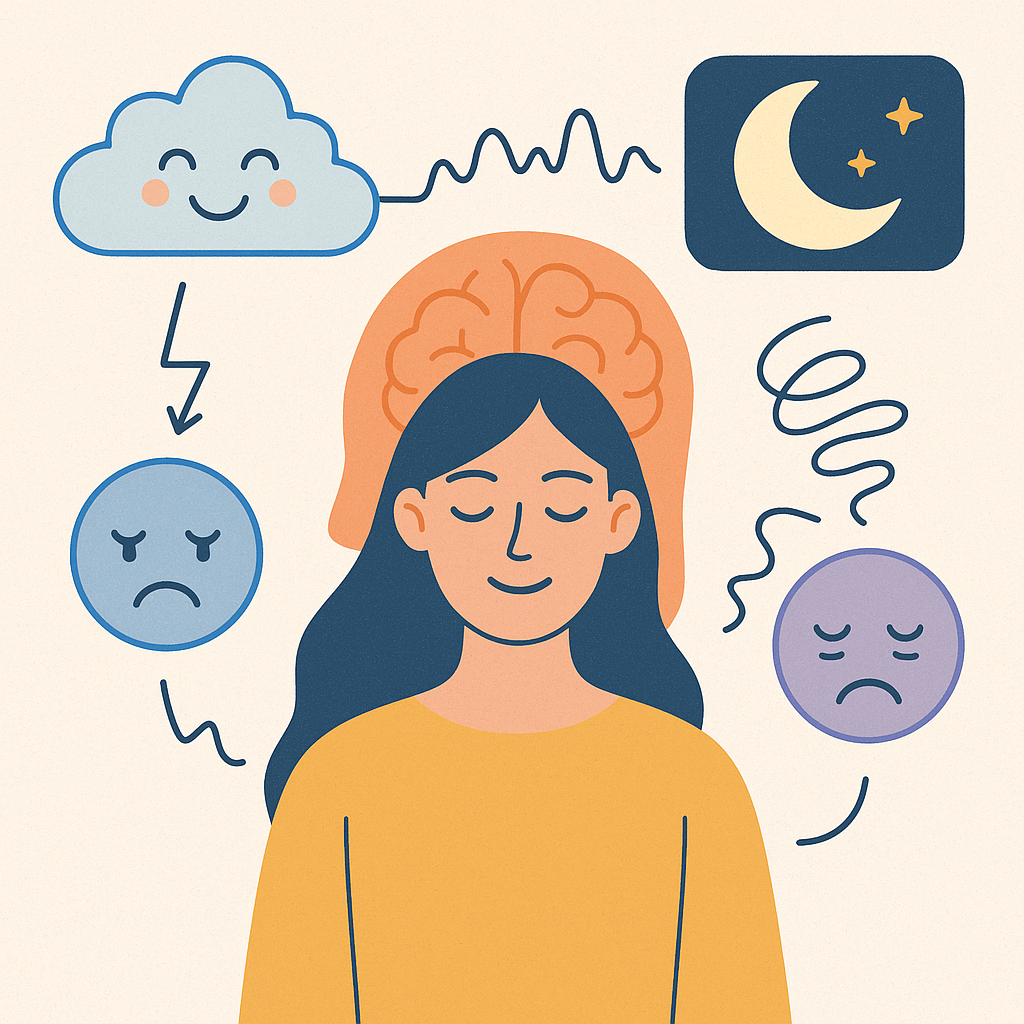
Welcome to our new blog focusing on psychology, mental health, and well-being. Open discussions about mental health are essential in today’s society, where stigma often discourages people from openly addressing their mental well-being.
Mental health encompasses one’s psychological state—how individuals feel, think, behave, and interact. A healthy mind is crucial for happiness, fostering positive relationships, self-understanding, and inner peace.
Stressing the brain out
Stress is an emotional response to perceived threats or overwhelming situations. Understanding the brain’s reactions to stress is key to managing it effectively.
In this post, we explore the brain regions involved in emotional responses such as stress, anxiety, and depression, starting with the amygdala. This region triggers the ‘fight or flight’ response during stressful situations by releasing adrenaline.
The amygdala processes sensory signals as potential threats, sending them to the hypothalamus, which triggers the release of stress hormones. We’ll focus on two key hormones
Adrenaline
Produced by the adrenal glands, adrenaline acts as a neurotransmitter in the brain. Elevated stress levels prompt increased adrenaline production, raising heart rate and blood pressure.
Cortisol
Known as the ‘stress hormone,’ cortisol serves various roles in the body, including regulating blood sugar and pressure, influencing memory and sleep cycles, and supporting fetal development during pregnancy.
Understanding Cortisol Regulation
Cortisol, an essential hormone, is regulated through a complex interaction involving the hypothalamus, pituitary gland, and adrenal glands. Here’s how it functions:
- Monitoring Cortisol Levels: The hypothalamus and pituitary gland constantly monitor cortisol levels in the bloodstream. When levels are low, the hypothalamic cells release Corticotrophin hormone, prompting the pituitary gland to secrete adrenocorticotrophic hormone (ACTH) into the blood.
- Stimulating Cortisol Production: Elevated levels of ACTH stimulate the adrenal glands to produce and release cortisol, thereby increasing its concentration in the blood.
- Negative Feedback Mechanism: As cortisol levels elevate, they inhibit the further release of Corticotrophin and ACTH. This feedback mechanism helps maintain cortisol levels within a normal range.
- Impact of Stress: Elevated cortisol levels are often associated with stress responses in individuals. Cortisol binds to receptors present in nearly all body cells, influencing various physiological functions. High levels of cortisol, particularly in women, can disrupt normal menstrual cycles.
Understanding these processes is crucial for comprehending how stress impacts the body’s hormonal balance.
Symptoms of Stress
Stress can manifest in various ways, including:
- Increased heart rate
- Changes in eating patterns
- Sleep disturbances or insomnia
- Feelings of dizziness or fatigue
- Mood swings
- Sensation of being overwhelmed or threatened
- Irritability
- Fluctuations in blood sugar and blood pressure levels
- Difficulty maintaining focus or concentration
- Muscle tension or pain
- Digestive problems
- Feelings of sadness
- Emotional instability
These indicators highlight the diverse physical and emotional impacts of stress on individuals.
Managing Stress
To effectively manage stress, consider implementing these strategies:
- Regular Exercise: Engage in a consistent exercise regimen to promote physical and mental well-being.
- Balanced Nutrition: Ensure a diet rich in balanced nutrients to support overall health.
- Relaxation Techniques: Practice meditation, yoga, or mindfulness to calm and center the mind.
- Establish Routine: Create and follow a daily schedule to provide structure and stability.
- Quality Sleep: Aim for regular and sufficient sleep each night to enhance overall resilience.
- Effective Work Management: Break tasks into manageable steps, set realistic goals, and prioritize tasks systematically.
- Seek Social Support: Share your feelings and experiences with trusted friends or loved ones to alleviate stress.
- Professional Help: Seek guidance from healthcare professionals or counselors when needed.
Remember, prioritizing self-care is essential for maintaining well-being and resilience in managing stress.
References:
- McEwen, B. S. (2007). Physiology and neurobiology of stress and adaptation: Central role of the brain. Physiological Reviews, 87(3), 873-904. doi:10.1152/physrev.00041.2006
- Lupien, S. J., McEwen, B. S., Gunnar, M. R., & Heim, C. (2009). Effects of stress throughout the lifespan on the brain, behaviour and cognition. Nature Reviews Neuroscience, 10(6), 434-445. doi:10.1038/nrn2639
- Arnsten, A. F. T. (2009). Stress signalling pathways that impair prefrontal cortex structure and function. Nature Reviews Neuroscience, 10(6), 410-422. doi:10.1038/nrn2648
- Kirschbaum, C., & Hellhammer, D. H. (1994). Salivary cortisol in psychoneuroendocrine research: Recent developments and applications. Psychoneuroendocrinology, 19(4), 313-333. doi:10.1016/0306-4530(94)90013-2
- McEwen, B. S., & Gianaros, P. J. (2011). Stress- and allostasis-induced brain plasticity. Annual Review of Medicine, 62, 431-445. doi:10.1146/annurev-med-052209-100430
Leave a Reply